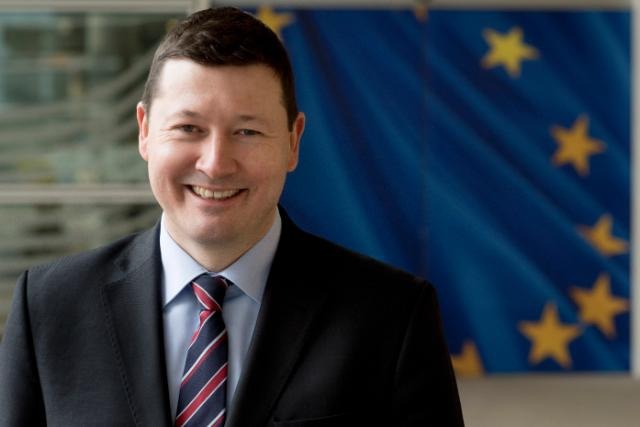The political party groups in the Parliament have prepared a catalogue of detailed questions to the European Commission on its appointment of Martin Selmayr as new secretary general of the Commission. A hearing in the budgetary control commitee with the commissioner in charge of human resources, Gunther Oettinger, is expected this week.
MEP Sven Giegold from the Greens/EFA group commented that the Commission must answer all quesions as comprehensively as has been promised by Oettinger to the Parliament.
The catalogue includes several questions about the factual unfolding of events leading up to the appointment of Selmayr at the critical meeting of the College of Commissioners on 21 February. The Parliament has scrutinized the protocol from the meeting but wants all documentation about the selection/recruitment process, even down to a timeline by minute.
The Parliament wants also to confront the Commission on its interpretation of the legal framework for appointments and asks, for example, if its own legal service was consulted in the process. It wants to know if and how the appointment of Selmayr differed from previous appointments of secretaries general.
Judging from the questions, the Parliament suspects or hints that the Commission misused its power, when it decided to appoint Selmayr to the post of secretary general.
The decision was taken at a College meeting when the issue was not on the agenda, and he was the only candidate. Selmayr was first apointed deputy secretary general and a few minutes later, secretary general.
According to the Parliament, the appointment procedure may not be used with the obvious intention of achieving a different aim from that for which it was launched - in this case, as a launching pad for the appointment to secretary general.
Commission's replies
The European Commission published on Saturday (25 March) a factsheet in the form of answers to some of the Parliament’s questions on Selmayr’s appointment.
According to the Commission, his appointment was decided in full compliance with all legal rules. He met the formal requirements since had the required salary grade and the minimum years of senior management experience from his previous posts as head of cabinet.
The Commission also writes that it was in accordance with normal Commission practice, and in order to safeguard the necessary degree of confidentiality, that his appointments were presented directly to the College on the same day as it decided on them.
He could also have been appointed to the post of secretary general without first having been appointed to the post as deputy secretary general, according to the Commission. But he did not know until the 20 February that the post as secretary general would become vacant.
The previous three secretaries general were appointed in the same way, by transfer to the post and on the very same day as their appointments were put to the College for decision.
The Brussels Times

